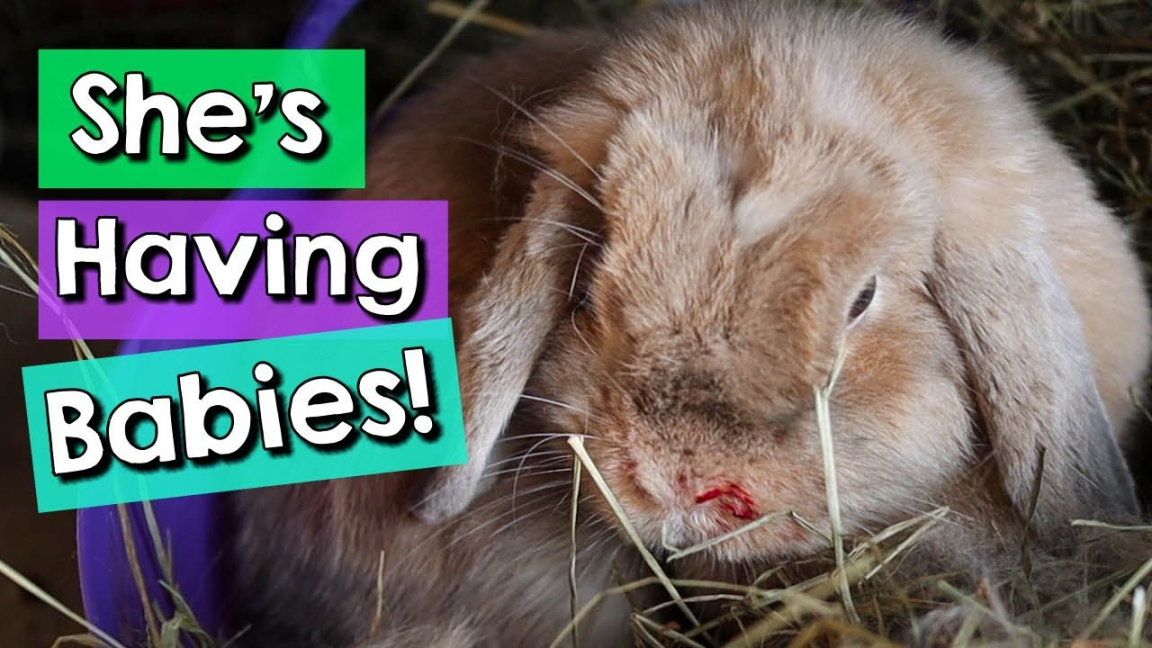How Do You Know When a Rabbit Has Finished Giving Birth?
Signs of the End of Labor
When a rabbit is giving birth, it can be an exciting yet nerve-wracking time for the owner. It is important to be able to recognize when the mother rabbit has finished giving birth. Here are some signs to look out for:

1. Nesting behavior
Before giving birth, a pregnant rabbit will create a nest using hay, straw, or other soft bedding materials. Once the birthing process is complete, the mother rabbit will typically stop rearranging the nest and focus her attention on caring for her newborns.
2. Decreased contractions
During labor, a rabbit will experience contractions as she delivers each baby. As she nears the end of the birthing process, the frequency and intensity of contractions will decrease. This indicates that she is almost finished giving birth.
3. Calm behavior
As the mother rabbit finishes giving birth, she will often become more relaxed and calm. She may groom herself or take short breaks from nursing her babies. This change in behavior is a positive indication that the birthing process is complete.
4. Placenta expulsion
After delivering each baby, a rabbit will usually pass the placenta. The placenta is a tissue that connects the baby to the mother and provides nourishment during pregnancy. If you notice the mother rabbit expelling multiple placentas, it is a strong indication that she has finished giving birth.
Post-Birth Care
Once the mother rabbit has finished giving birth, it is important to provide her with the necessary care and support. Here are some essential tasks to ensure the well-being of the mother and her newborns:
1. Keep the nest clean
Ensure that the nest remains clean and dry to prevent the risk of infection. Remove any soiled bedding and replace it with fresh, clean material. This will help maintain a healthy living environment for the mother and her babies.
2. Monitor the mother rabbit
Observe the mother rabbit closely to ensure she is nursing her babies and providing them with enough warmth and care. If you notice any signs of distress or she is not attending to her newborns, consult a veterinarian for guidance.
3. Provide a balanced diet
A nursing mother rabbit requires a well-balanced diet to support her health and milk production. Offer a combination of fresh hay, high-quality pellets, and a variety of fresh vegetables. Consult with a veterinarian for specific dietary recommendations.
4. Separate males from females
If you have both male and female rabbits, it is crucial to separate them once the babies are born. Rabbits can breed again shortly after giving birth, so preventing further pregnancies is important to avoid unnecessary stress on the mother’s body.
Frequently Asked Questions
1. How long does the birthing process typically last?
The birthing process in rabbits usually lasts between 15 and 30 minutes per kit. However, it can take longer if the litter is larger. It is important to be patient and allow the mother to proceed at her own pace.
2. Should I assist the mother during labor?
In general, it is best to allow the mother rabbit to give birth without interference. Rabbits are instinctual animals, and they usually handle the birthing process efficiently on their own. However, if you notice any complications or the mother is struggling, consult a veterinarian for advice.
3. How many babies can a rabbit have in one litter?
Rabbits can have between 1 and 14 babies in a single litter, depending on the breed and individual factors. On average, litter size ranges from 4 to 12 kits.
4. When can I handle the newborn rabbits?
It is generally recommended to avoid handling newborn rabbits for the first few days as they are delicate and require bonding time with their mother. Disturbing them too soon can cause stress and potentially harm them. However, you can carefully monitor them from a distance to ensure their well-being.
Related Articles…
Copyright Notice:
The images displayed here are sourced from the internet, with copyrights held by respective owners. For removal of any copyrighted image, please email us.